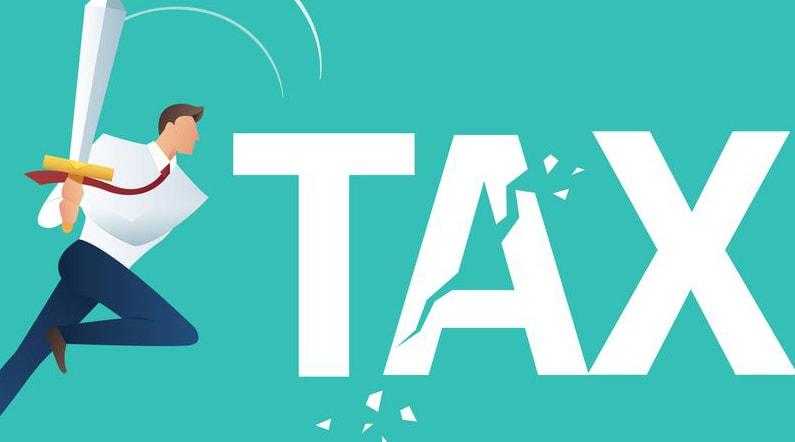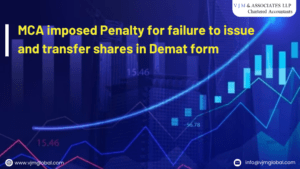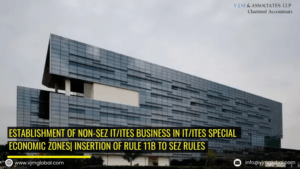A new section 115BAB has been inserted, giving an option of a reduced Income tax rate of 15% to new domestic companies setup and registered on or after 1 October 2019 and engaged solely in the business of manufacturing or production of any article or thing and research in relation to, or
distribution of such article or thing manufactured or produced by it. Upon considering the applicable surcharge of 10% and health and education cess of 4%, the effective tax rate works out to be 17.16%.
This provision has been targeted at attracting fresh investments in manufacturing and thereby provide boost to ‘Make-in-India’ initiative of the Government.
The option to choose this provision of reduced tax rates shall be applicable in perpetuity to the Company and shall be available at the time frame to chose this option shall be required to be exercised before the due date of furnishing the very first return of income under section 139(1) of the Act.
The option is available subject to the following conditions:
1. Company to be setup and registered on or after 1 October 2019
2. Company to commence production on or before 31 March 2023
3. Company should not be formed by the split-up or reconstruction of an existing business
4. More than 20% of the total investment in plant and machinery should not have been previously used by any other person in India
5. Plant and machinery should be new and not imported into India
6. The Company should not be engaged in any business other than business of manufacturing or production of any article or thing and research in relation to, or distribution of such article or thing manufactured or produced by it.
7. No deduction shall be available to the Company under the following provisions:
- Section10AA – profits of a unit in Special Economic Zone (‘SEZ’)
- Section 32(1)(iia) – Additional depreciation allowance @ 20%
- Section 32AC and 32AD – Investment Allowance for investment in new plant and machinery in notified backward states
- Section 33AB – Tea/ Coffee/ Rubber development allowance
- Section 33ABA – Site restoration fund
- Section 35(1)(ii), (iia), (iii) & Sec 35(2AA), (2AB) – Expenditure on scientific research
- Section 35AD – Accelerated deduction on capital expenditure for specified business
- Section 35CCC – Expenditure on agricultural extension project
- Section 35CCD – Expenditure on skill development project
- Deduction under Part C of Chapter VIA other than Sec 80JJAA (deduction in respect of employment of new employees).
8. The Company shall not be eligible to set off any loss carried forward from any earlier assessment year if such loss is attributable to any of the above deductions.
9. Depreciation shall be computed in the manner as will be prescribed. Till such time, the rate of depreciation prescribed in Appendix-1 shall continue to be applicable.
10. Provisions of Section 115JB in respect of MAT on book profits shall not be applicable.
11. Existing MAT credit available to the Company under Section 115JAA shall continue to be applicable for utilisation and set-off. (However, there are varied interpretations on this aspect)
12. The company shall be required to exercise the option before the due date of furnishing the first return of income under section 139(1) of the Act.
13. Option once exercised for any year cannot be subsequently withdrawn for the same or any other assessment year.
14. No option to exit this concessional rate of tax regime.
15. No condition/ limitation on account of turnover, type of business, nature of activity or date of incorporation.
16. The provision shall be applicable only for domestic companies, i.e. all companies formed and registered in India. Branches or Permanent Establishment(s) of foreign companies are not eligible.
17. Transactions between the Company and associated enterprises shall be subjected to domestic transfer pricing provisions.
Read more Welcome changes in Income tax rates






